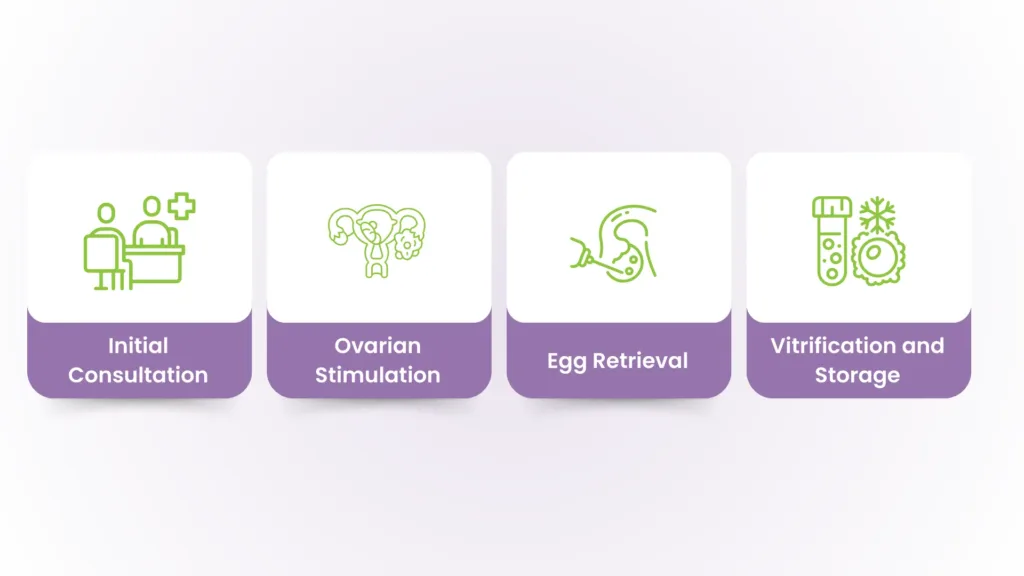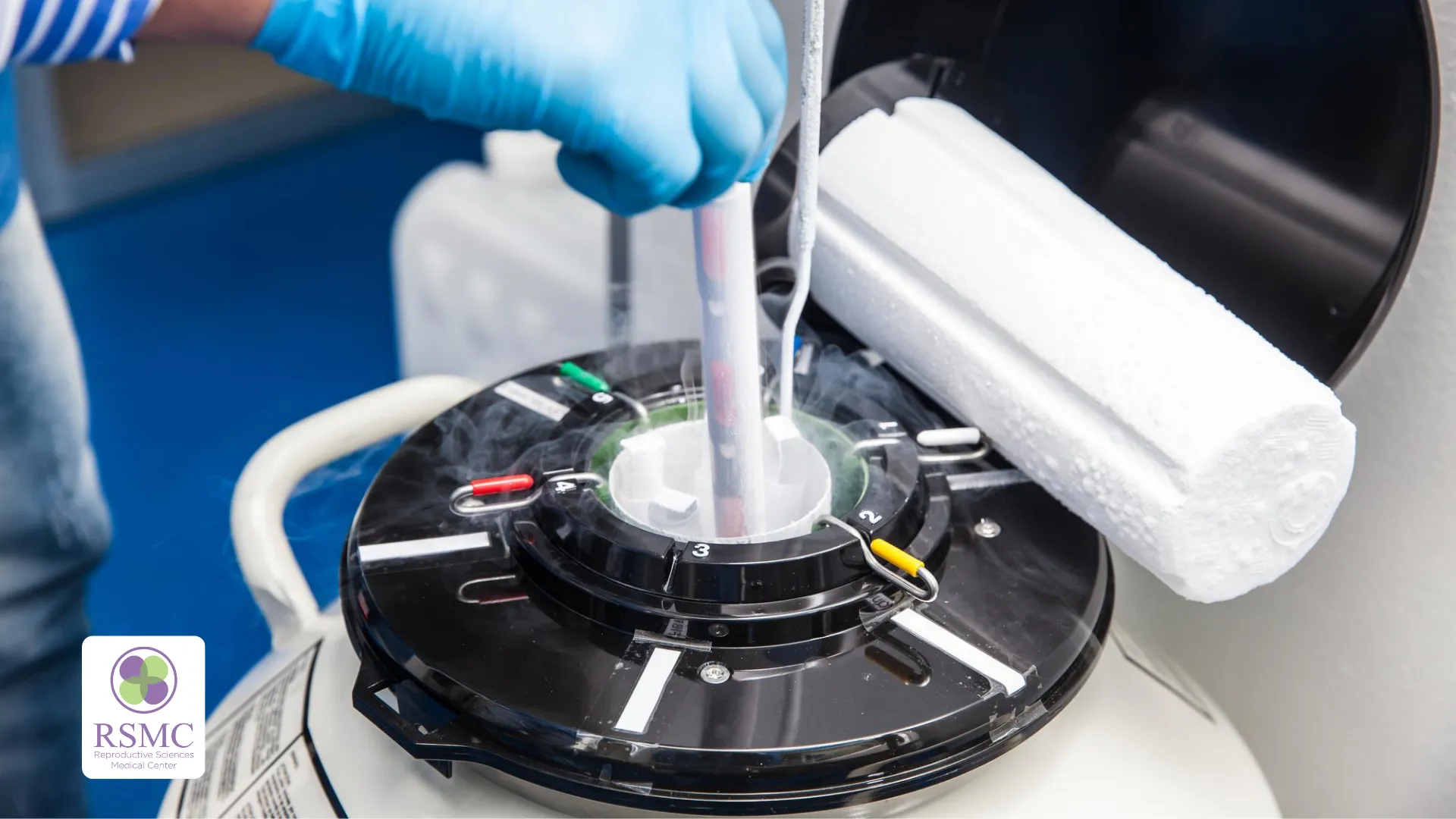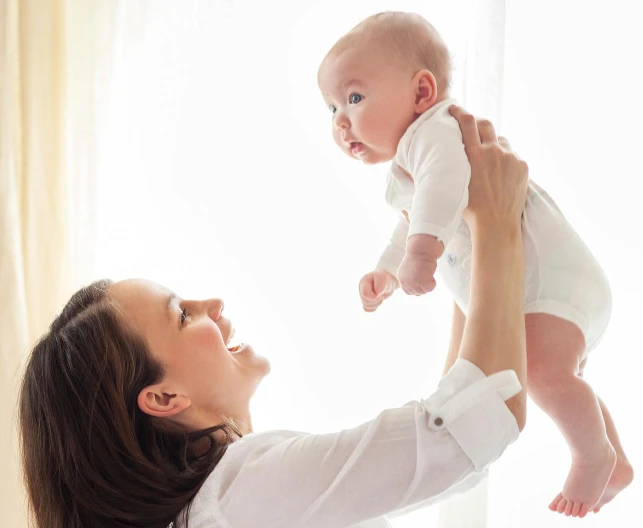Freezing eggs offers a opportunity for women to preserve their fertility for the future. Egg freezing allows people to take control of their reproductive health and plan for family-building on their own terms. Understanding the egg-freezing process, its benefits, costs, and important factors is essential in making an decision about this life-changing option. This information helps you experience the process with confidence and make choices that fit your future plans.
Why Consider Freezing Eggs?
Egg freezing offers flexibility in today’s fast-paced world. By freezing mature eggs, you keep the option to have biological children later in life when the timing aligns with your goals. Here are some reasons why this option might be right for you.
Future Family Planning
Freezing eggs provides reliable protection for women who want to delay parenthood. Life doesn’t always follow a predictable timeline, and having this option offers an opportunity to choose the best timing. As you age, your ovarian reserve naturally declines, which affects both the quantity and quality of your eggs. This decrease can make it harder to conceive later in life. However, by freezing your eggs early, you preserve their current quality, giving yourself a better chance of successful pregnancy in the future. This proactive step ensures that you can focus on other priorities while keeping the door open for building a family when the time feels right. For many, it’s a way to reduce stress and uncertainty about fertility in later years.
Career Considerations
For many women, career growth and personal development are top priorities during their most fertile years. The demands of education, work, and achieving personal goals can make it challenging to think about starting a family. Egg freezing offers a solution to this dilemma by effectively pausing your biological clock. It allows you to focus on advancing your career without worrying about the time-sensitive nature of fertility. This medical treatment guarantees that your eggs remain viable even as you age. It empowers you to make decisions about parenthood on your own terms. With this option, you can follow your ambitions fully while keeping the possibility of future parenthood.
Medical Reasons
Egg freezing is a great option for women undergoing medical treatments that could affect fertility, such as chemotherapy or radiation. These treatments, while lifesaving, can harm the ovarian reserve by reducing the number of healthy eggs available for future use. By freezing eggs before starting treatment, you secure the possibility of having biological children later in life.
In addition to treatment-related concerns, family history plays an important role in fertility decisions. If you have a family history of early menopause or other fertility issues, oocyte cryopreservation can be a proactive step. It helps to protect your reproductive potential before age or health conditions impact it. Freezing eggs makes sure that you maintain the opportunity to build a family despite medical challenges or genetic predispositions.
Understanding the Egg Freezing Process

The egg freezing procedure involves several steps. Each stage is created to optimize the number of viable eggs collected and stored. Below is a breakdown of what you can expect.
Initial Consultation
The journey begins with an initial consultation with a fertility specialist. During this meeting, your ovarian reserve is evaluated through blood tests and ultrasounds. These tests provide insight into the quantity and quality of your eggs. The doctor will also discuss your family history, personal goals, and any medical conditions to create a specific plan for your egg freezing cycle. This step makes sure that your unique needs and circumstances are fully considered.
Ovarian Stimulation
Ovarian stimulation is the next stage of the process. It involves daily hormonal injections designed to stimulate the ovaries to produce multiple eggs. Normally, the body develops only one egg per cycle, but this treatment encourages the growth of several. The stimulation phase typically lasts 10–14 days and requires regular monitoring. Ultrasounds and blood tests are used to track the development of ovarian follicles and check whether the process is progressing as planned.
Egg Retrieval
Egg retrieval is a quick and minimally invasive procedure performed under sedation. Using an ultrasound-guided needle, the fertility specialist retrieves mature eggs directly from the ovaries. This process takes approximately 20–30 minutes. Most individuals experience only mild discomfort and can go home shortly after. Recovery time is usually short, allowing you to return to normal activities within a day or two.
Vitrification and Storage
Once retrieved, the eggs are immediately frozen through a technique called vitrification. This advanced method uses liquid nitrogen to rapidly freeze the eggs, preventing ice crystal formation that could damage their structure. Vitrification guarantees the eggs remain in excellent condition for future use. The frozen eggs are stored securely until you are ready to proceed with in vitro fertilization (IVF). During IVF, the eggs are thawed, fertilized, and prepared for implantation, keeping your reproductive options open for the future.
Ideal Age for Egg Freezing
Timing plays a main role in the success of egg freezing. While there isn’t a strict egg freezing age limit, younger women generally have better outcomes.
Freezing eggs in your 20s or early 30s offers the highest egg freezing success rates because the eggs are healthier and more viable. However, advancements in the freezing process have improved outcomes for individuals in their late 30s or early 40s. Consulting with a fertility specialist can help determine the best timing based on your ovarian reserve and personal circumstances.
Success Rates and Factors
The success of egg freezing depends on different factors. Understanding these can help you set realistic expectations for your fertility journey.
Modern Facilities
Modern fertility clinics are equipped with the latest technology and facilities, all of which can play an important role in boosting success rates. Clinics that offer advanced techniques such as cryopreservation (egg freezing) under controlled conditions, along with specialized embryo culture labs, improve the chances of successful egg retrieval and fertilization.
- Advanced Cryopreservation: Modern methods for freezing and storing eggs help preserve their quality, reducing the risk of damage during the freezing and thawing process.
- Laboratory Technology: Modern lab equipment guarantees optimal conditions for egg fertilization, and ongoing monitoring improves the chances of success.
- Personalized Monitoring: High-tech diagnostic tools allow fertility specialists to closely monitor your cycle and tailor treatments to your individual needs.
Health Factors
Your overall health and lifestyle also play a role in egg freezing outcomes. Factors such as a balanced diet, regular exercise, and avoiding harmful habits like smoking can positively impact egg quality. Also, family history and pre-existing medical conditions like polycystic ovary syndrome (PCOS) or endometriosis may influence the egg freezing cycle. These conditions can affect ovarian response, making careful monitoring and personalized treatment plans essential.
Working closely with a fertility specialist, helps you address health concerns and optimize your chances of success. Personalized care ensures that every aspect of your health is considered, providing the best possible outcome for your egg freezing journey.
Age-Related Success
Age is the most critical factor influencing egg freezing success. Eggs collected at a younger age are healthier and more likely to survive the thawing and fertilization process. As women age, both the quality and quantity of eggs naturally decline. Freezing eggs earlier, ideally in your 20s or early 30s, improves the chances of a successful pregnancy later.
Costs and Financial Considerations

Egg freezing cost is a key consideration for many individuals. While the upfront expenses can be high, options for financial assistance and insurance plans may help.
Cost Breakdown
The cost can vary depending on several factors. Typically, the price for one egg freezing cycle ranges from $8,000 to $15,000. This includes the egg retrieval procedure and the vitrification process, which preserves the eggs for future use.
However, additional expenses may apply. Hormonal medications needed for ovarian stimulation typically cost between $2,000 and $5,000 per cycle. These medications are necessary to increase the development of multiple eggs during the ovarian stimulation phase.
Storage fees for the frozen eggs are another additional expense. These fees typically range from $500 to $1,500 annually, depending on the clinic and storage conditions. These costs can accumulate over time, especially if you plan to store your eggs for several years.
Financial Assistance and Insurance
Many fertility clinics offer financial assistance to help manage the costs of egg freezing. Payment plans or discounts may be available, especially if you plan to undergo multiple cycles to increase the number of viable eggs. It’s worth asking about options for splitting payments or any promotions that may apply.
Some insurance plans are beginning to cover part of the egg freezing process, particularly when it’s medically necessary, such as before undergoing chemotherapy or radiation treatments. While insurance coverage varies widely by provider and region, it’s important to contact your insurance company to explore what is covered and what additional expenses you can expect.
Taking the time to explore all your financial options can make the egg freezing procedure more accessible and affordable, making sure that you can preserve your fertility for the future without financial strain.
Using Frozen Eggs
When the time comes to use your frozen eggs, the process is simple and effective.
Fertilization Process
When you’re ready to use your frozen eggs, the first step is thawing them. After thawing, the eggs are fertilized with sperm either through in vitro fertilization (IVF) or Intracytoplasmic Sperm Injection (ICSI). This creates embryos, which are then evaluated for quality. Only the best embryos are selected for implantation.
Embryo Transfer
During embryo transfer, one or more embryos are placed into the uterus. The number of embryos transferred depends on your specific circumstances and medical advice. Any remaining embryos can be stored or refrozen for future use. Fertility specialists monitor this process closely to increase the chances of a successful pregnancy.
How Long Can Frozen Eggs Stay Viable for Treatment?
One of the main advantages of egg freezing is that your eggs can be stored for long periods. This possibility allows you to plan your family when the time is right for you. But how long can frozen eggs be safely stored?
Egg Storage Duration
Eggs can be stored for many years without losing their viability. There are a few key points to keep in mind:
- No Set Expiration Date: There is no specific expiration date for frozen eggs. As long as they are stored in proper conditions, such as in liquid nitrogen, they remain viable for future use.
- Storage for 10+ Years: Many fertility clinics report that eggs can be stored for over 10 years, with success rates remaining consistent after long-term storage.
Factors Influencing Storage Time
While eggs can technically be stored indefinitely, several factors influence their long-term viability. These include:
- Storage Conditions: Eggs are stored in liquid nitrogen at extremely low temperatures, preserving their quality. Proper handling and storage are necessary to maintain their viability.
- Advancements in Freezing Technology: Techniques like vitrification (rapid freezing) have significantly improved, allowing eggs to remain viable for longer periods.
- Clinic Protocols: Different clinics may have different storage policies, but most follow best practices to guarantee the preservation of eggs.
How to Find the Right Egg Freezing Clinic
Choosing the right clinic for egg freezing is one of the most important steps. The clinic you select will play an important role in the egg freezing process. Here’s how you can find the best fertility clinic to meet your needs.
1. Research Clinic Reputation
Start by researching clinics in your area or those offering virtual consultations. Look for the following:
- Success Rates: Check the clinic’s success rates with egg freezing and IVF. Reputable clinics often share these statistics.
- Reviews and Testimonials: Read reviews from patients who have undergone the egg freezing procedure. Look for positive experiences and satisfied outcomes.
- Protocols: Make sure the clinic follows strict guidelines approved by organizations like the American Society for Reproductive Medicine (ASRM)
2. Evaluate the Expertise of the Specialists
The qualifications of the fertility specialists are highly important. Make sure the clinic employs experienced professionals, such as:
- Board-Certified Reproductive Endocrinologists: These specialists have additional training in fertility.
- Embryologists: Skilled embryologists are essential in the egg freezing and IVF process to guarantee the best care for your eggs.
3. Consider the Technology and Equipment
Modern technology can improve the outcome of your egg freezing procedure. Look for clinics that use:
- Vitrification: This advanced freezing technique helps preserve egg quality.
- Advanced Imaging and Monitoring: Clinics that use modern imaging tools and advanced monitoring systems often offer better results.
4. Review Financial Options
Egg freezing can be expensive. Make sure the clinic offers financial options such as:
- Payment Plans: Clinics may offer installment plans to make the process more affordable.
- Insurance Coverage: Check whether your insurance plan covers any part of the procedure.
- Cost Transparency: Choose a clinic that provides clear pricing with no hidden fees.
5. Visit the Clinic
Once you’ve narrowed down your options, schedule a visit. This will help you feel more confident in your decision. During the visit, ask questions about:
- The Egg Freezing Process: Make sure they provide clear explanations about each stage.
- Patient Care: Observe the level of professionalism and compassion of the staff.
- Facility Cleanliness: Make sure the clinic maintains high hygiene standards.
6. Trust Your Instincts
Finally, trust your gut feeling. Choose a clinic where you feel comfortable, confident, and supported. A positive experience with both the staff and environment can make a difference in your egg freezing journey.
Common Concerns and Misconceptions
While egg freezing is a safe and well-established procedure, it’s natural to have questions or concerns about its safety and long-term effects.
Safety of the Procedure
Egg retrieval is a common and safe procedure, performed regularly with minimal risks. Most people experience only mild side effects, such as bloating or cramping, which typically go away within a few days. Serious complications are very rare. Thanks to advanced freezing methods, eggs remain healthy and viable for future use.
Long-Term Effects
Studies show that there are no long-term negative effects of egg freezing on future pregnancies. The eggs stored in liquid nitrogen remain viable for many years. This makes sure that you have the freedom to pursue pregnancy whenever it’s the perfect time for you, offering confidence for long-term family planning.
Freezing eggs empowers individuals to take control of their reproductive futures. The process offers hope and flexibility to women choosing these options for personal, medical, or career reasons. Understanding the freezing eggs procedure, its costs, and its benefits allows you to make a decision that aligns with your family’s goals.

























